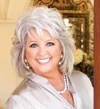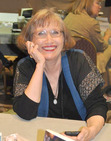Chefs Vs. Cooks
[image error]So Anthony Bourdain is at it again. The author of Kitchen Confidential and the host of No Reservations has a bone to pick with the Food Network. Mainly, he hates a lot of their chefs, or rather he hates a lot of their cooks.
In the professional food world, chef and cook have particular meanings. Chefs usually have degrees from culinary schools and are the heads of kitchens. Cooks have no degrees and learn by doing. In a restaurant they're the ones who cook the meals the chef creates.
Bourdain considers most of the Food Network's female stars, who lack the requisite degrees from culinary school, to be the equivalent of second-rate restaurant cooks. He gives Rachael Ray a pat on the head because she's cute and nice, but he dismisses her food as "mediocre" and sometimes plain awful. Sandra Lee is "as stupid and untalented as Britney Spears" (on another occasion she was "pure evil").
 But his vituperation of Paul Deen is the most extreme: Deen is "the worst, most dangerous person to America" because she knowingly creates terrible recipes that will increase the already dangerous level of obesity in the US.
But his vituperation of Paul Deen is the most extreme: Deen is "the worst, most dangerous person to America" because she knowingly creates terrible recipes that will increase the already dangerous level of obesity in the US.
Now it's worth pointing out that Bourdain himself got his start in French cooking, which is hardly a model of healthy food, given its abiding love of butter and heavy cream. But there's more going on here than simple hypocrisy, I think (or simple self promotion—every time Bourdain takes another swipe at the Food Network, he gets national coverage). Bourdain and his buddies are doing what chefs have done for generations. He wants to put those uppity women back in their place.
You see, there's a larger meaning for cook than just the one used in the restaurant trade. Cooks are also the people, most frequently women, who get the meals on the table across the country, hell, across the world. They're the ones who try to figure out what to serve a bunch of hungry people every night, usually people who are related to them either by genes or affection. There's a long tradition of learning from these people since they've spent a lot of years in front of a stove, frequently developing and maintaining the recipes of a family or a culture. There's also an equally long tradition of holding them in contempt, at least from the point of view of the professional chef, particularly the male professional chef.
But my question is this: why are restaurant chefs necessarily the ones we should learn from? It's true that restaurant chefs get meals out the door every day and night, and their volume is a lot higher than home cooks. But home cooks like me don't have a lot of the things they take for granted. My stove can't get super hot, for example, and neither can my oven. Prime cuts are out of the question even if I could afford them since they almost never show up in grocery stores. In fact, grocery stores don't carry a lot of the items that restaurant chefs can't live without, including exotic herbs and fresh seafood (most of the fish in my area is frozen). So I may get a kick out of watching Mario Batali work, but I know damn well I'll never be able to duplicate what he does in my home kitchen. No, if I want to see something I actually have a chance of cooking at home, I'll turn to someone like Sunny Anderson or Ina Garten.
And why shouldn't ordinary cooks have a voice too? If I wanted to know certain things—how to fry chicken or fix collard greens, for instance—I'd sure as hell take Paula Deen's word over Anthony Bourdain. The woman may not know how to make beurre blanc, but she's done a country-fried steak or two, and she did them on a standard kitchen range.
So I'll go on enjoying restaurant food when I'm in a restaurant and I'll go on enjoying Batali and John Besh, but I have no problem watching a woman in a home kitchen show me how to cook meatloaf. At least I'll have a fighting chance of being able to do it myself.
[image error]
 [image error]
[image error]








